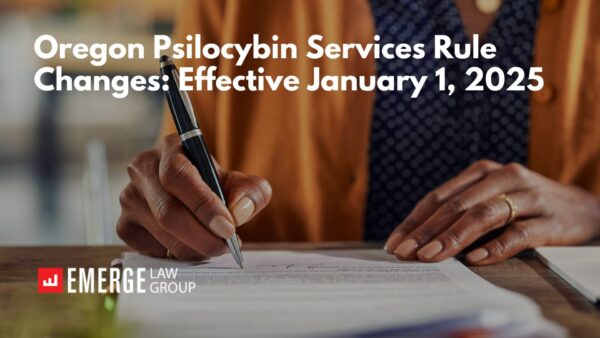On November 1, 2019, the Oregon Liquor Control Commission (“OLCC”) released proposed amendments to the recreational marijuana rules and the significant changes would affect every licensee if approved. We encourage you to read the proposed amendments to see if and how they might affect your business.
Also, this is one of the few times during the year when you can make your voice heard by OLCC. You may submit your comments regarding the proposed amendments (and any rule that contains any amendment) by emailing them to patrick.owen@oregon.gov no later than December 1, 2019. You may also have your comments heard in person during a public hearing held on November 15, 2019 from 9am – 11am at OLCC’s headquarters in Portland.
Below is a short summary of some of the major proposed amendments, however, you should check out the full draft amendments for a comprehensive view of all the proposed changes. Keep in mind that these amendments are only proposed and are likely to change after the public comment period and hearing. As always, please contact Emerge Law Group if you have any questions about how these proposed amendments may affect your business.
- Financial Interests
- The definition of “financial interest” would be broadened to include “domestic partners” who merely “share the same regular and permanent address and would be financially effected [sic] by the success or failure of the business,” not just adults who qualify for a “domestic partnership” under Oregon law.
- Pending Application Transfers
- Pending OLCC applications may not undergo a change of ownership prior to licensure (this rule would presumably only affect changes of ownership of 51% or more). This rule would be expanded to include all license types, not just producers.
- New Application Deadlines
- Applicants who submit applications after January 1, 2020 would have 60 days to “complete” the application process or have their applications placed in the “hold queue” for an indeterminate time period.
- If an applicant cannot meet the 60-day deadline after the application is reassigned from the hold queue, the application would be “inactivated” (withdrawn).
- Approved license applicants would have 30 days to submit payment of the license fee or the application would be inactivated.
- If an application is inactivated, the applicant has 10 days to submit a written request for reconsideration (that may or may not be approved).
- OLCC has authority to place an assigned application in the hold queue to “balance staff resources.”
- Loss of Access to Premises
- Licensees who will lose access to their licensed premises may be able to move their premises – if they can meet certain requirements – without losing their licenses.
- No Tax-Free Sales to Patients
- Retailers would no longer be able to sell marijuana items tax-free to OMMP patients and caregivers but may still sell to patients at a discounted rate or free of charge.
- Fine Increase
- Fine amounts for violations would double.
- Camera Coverage
- Required coverage would increase to certain “points of ingress or egress” that formerly did not require coverage.
- All cameras would be required to capture at 10 frames per second.
- Retailer Product Storage
- Products would no longer have to be stored in a safe or vault during non-operating hours if storage meets other security requirements.
- Extension of Allowable Transport Time Period
- Product transport between licensees could be completed within 60 hours and allow overnight pauses in transport.





